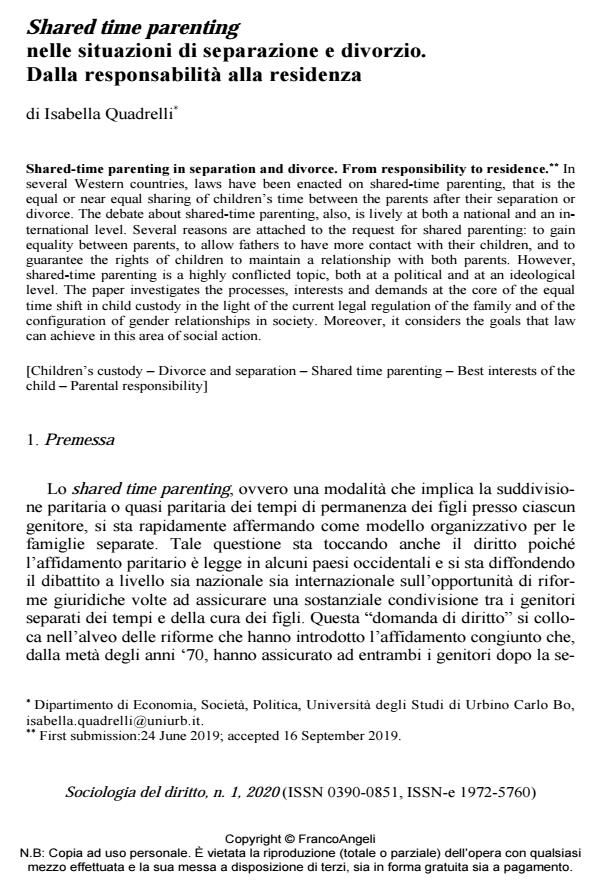Shared-time parenting in separation and divorce. From responsibility to residence
Journal title SOCIOLOGIA DEL DIRITTO
Author/s Isabella Quadrelli
Publishing Year 2020 Issue 2020/1
Language Italian Pages 20 P. 111-130 File size 241 KB
DOI 10.3280/SD2020-001007
DOI is like a bar code for intellectual property: to have more infomation
click here
Below, you can see the article first page
If you want to buy this article in PDF format, you can do it, following the instructions to buy download credits

FrancoAngeli is member of Publishers International Linking Association, Inc (PILA), a not-for-profit association which run the CrossRef service enabling links to and from online scholarly content.
In several Western countries, laws have been enacted on shared-time parenting, that is the equal or near equal sharing of children’s time between the parents after their separation or di-vorce. The debate about shared-time parenting, also, is lively at both a national and an interna-tional level. Several reasons are attached to the request for shared parenting: to gain equality between parents, to allow fathers to have more contact with their children, and to guarantee the rights of children to maintain a relationship with both parents. However, shared-time parenting is a highly conflicted topic, both at a political and at an ideological level. The paper investigates the processes, interests and demands at the core of the equal time shift in child custody in the light of the current legal regulation of the family and of the configuration of gender relation-ships in society. Moreover, it considers the goals that law can achieve in this area of social action.
Keywords: Children’s custody - Divorce and separation - Shared time parenting - Best interests of the child - Parental responsibility
Isabella Quadrelli, Shared time parenting nelle situazioni di separazione e divorzio. Dalla responsabilità alla residenza in "SOCIOLOGIA DEL DIRITTO " 1/2020, pp 111-130, DOI: 10.3280/SD2020-001007